The Origin of Coffee in Arabian Peninsula Qatari traditional Coffee Flavor characteristics production method Taste method
Professional coffee knowledge exchange more coffee bean information please follow the coffee workshop (Wechat official account cafe_style)
For more boutique coffee beans, please add private Qianjie coffee on Wechat. WeChat account: qjcoffeex
Although you can't drink at the World Cup in Qatar, the fans are moved by the Qatari hospitality after every game. Many fans said on social networking platforms that locals would prepare all kinds of traditional snacks, dates and coffee for fans after every game, saying: I really love it!

As for the sharing of fans, local netizens said it was a beautiful culture, a culture of sharing, giving and being kind to others. The nature of the hospitable Qatari is a very common phenomenon.
In Gulf countries such as Qatar, where coffee is a symbol of generosity and hospitality and occupies an important place in traditional folk heritage, people often use the term "pot without fire" to describe hospitable hosts. There are even some training centers in these areas to educate the new generation on how to make coffee and how to serve coffee to guests.
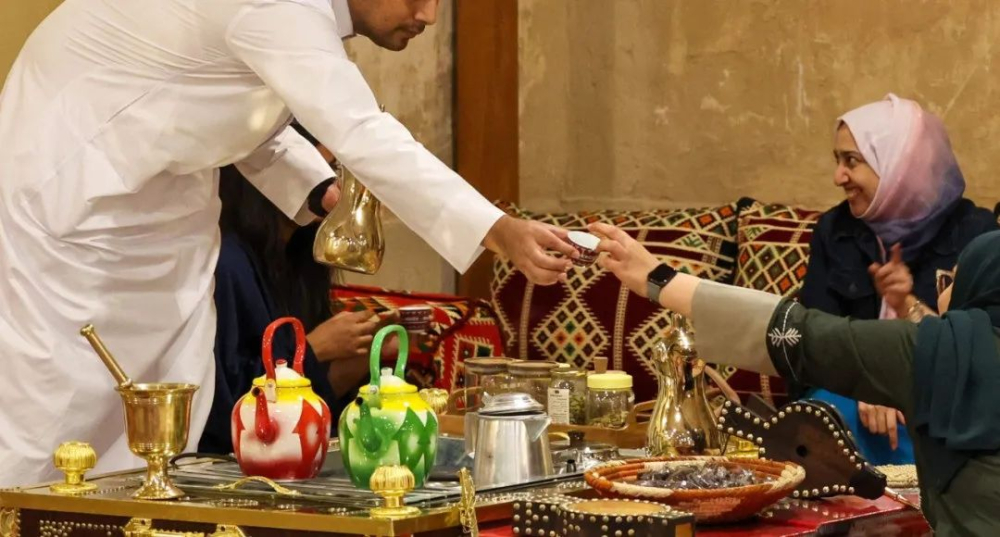
How to serve coffee and how to drink coffee are not random acts, but folk legacies handed down from generation to generation, the most important of which include: the host holds the coffee pot in his left hand and then hands the coffee cup to the guest with his right hand. and then gently, thin thread into the guest's cup of coffee.
When you go to Qatar's home, the host is sure to serve freshly brewed coffee and refill one cup after another until the guest gently shakes the finjan (Arabica coffee cup) to indicate that he will not refill the cup.
The traditional coffee in Qatar is about freshness! After the guests arrive, the host will begin to roast the raw beans until they turn yellow (when they begin to taste as sweet as corn), and then mash the coffee beans to coarse grains in the most primitive way.
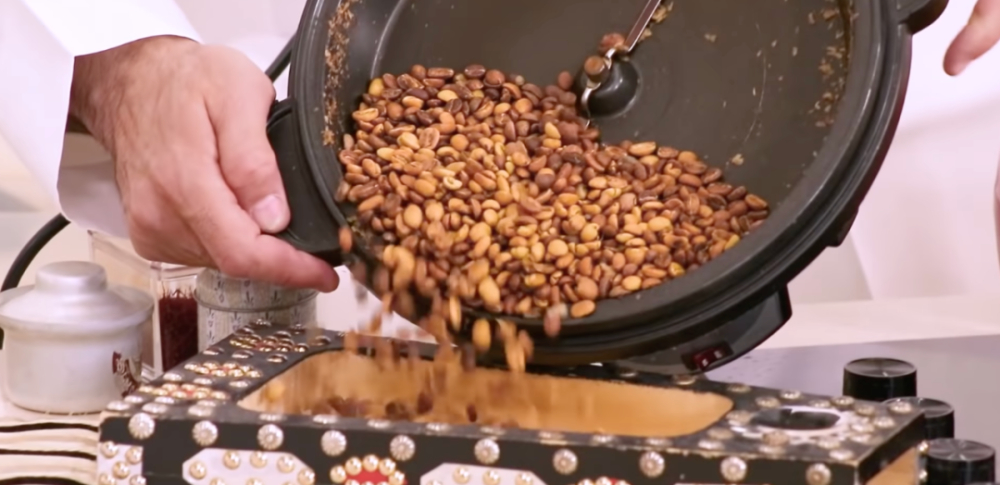
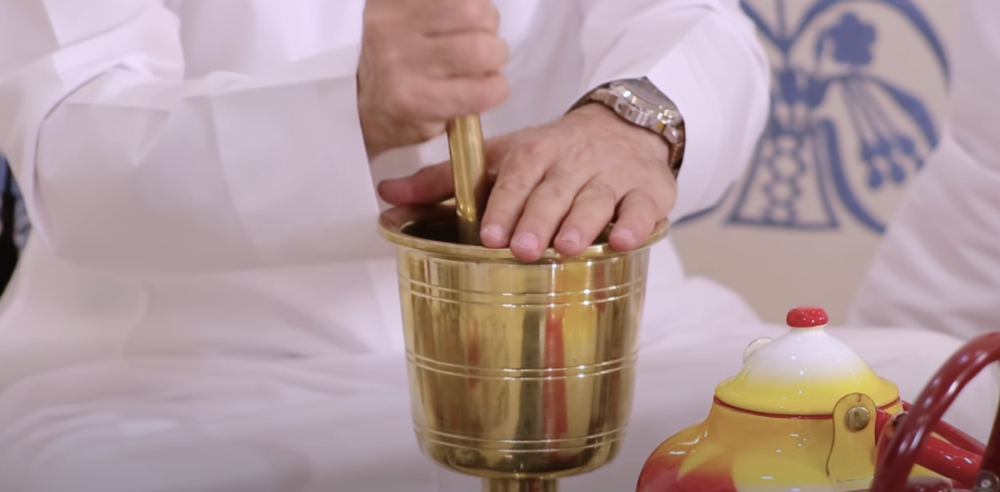
Then pour the coffee particles and water into the Arabian coffee pot (the coffee pot is made of metal, stainless steel, brass, gold plating, or even pure gold. This is Qatari. 😂), then add crushed cardamom, saffron, cloves, rose water and other spices to cook and then stuff the spout with a kind of wood fiber to filter the coffee grounds.
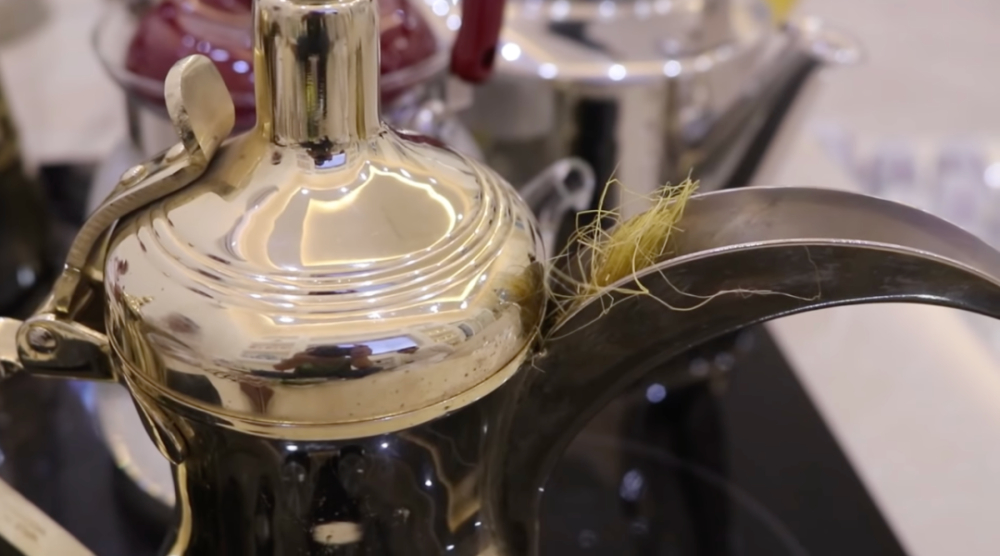
When you pour coffee, you must use your left hand. When you pour it, you must pull up the coffee pot to make a crisp sound when it falls into the cup, indicating that the coffee is ready, and then hand the coffee cup to the guest with your right hand.
The guest must hold the coffee cup in his right hand. It is an insult to the host if the guest does not drink the coffee in his hand. Similarly, if he doesn't want another drink, he should shake his cup back and forth, otherwise the host will continue to pour coffee for his cup.
This time the Qataris have prepared coffee, dates and traditional sweets for the fans, and you can see that the local people really welcome you to come! Although the craftsmanship is not as fine as coffee now, it is the best blessing from the local people to everyone who comes here.
History of Arabian Coffee
The word "coffee" comes from the Arabic word "Gahwa". In medieval Arabic, Gahwa refers to something that causes people to lose their appetite after being addicted, and generally refers to alcohol, because drinking too much makes people lose their appetite. The word was borrowed to refer to coffee 1400 years later, implying that drinking too much coffee makes people sleepy, just like drinking too much alcohol makes people lose their appetite, more or less awakening.
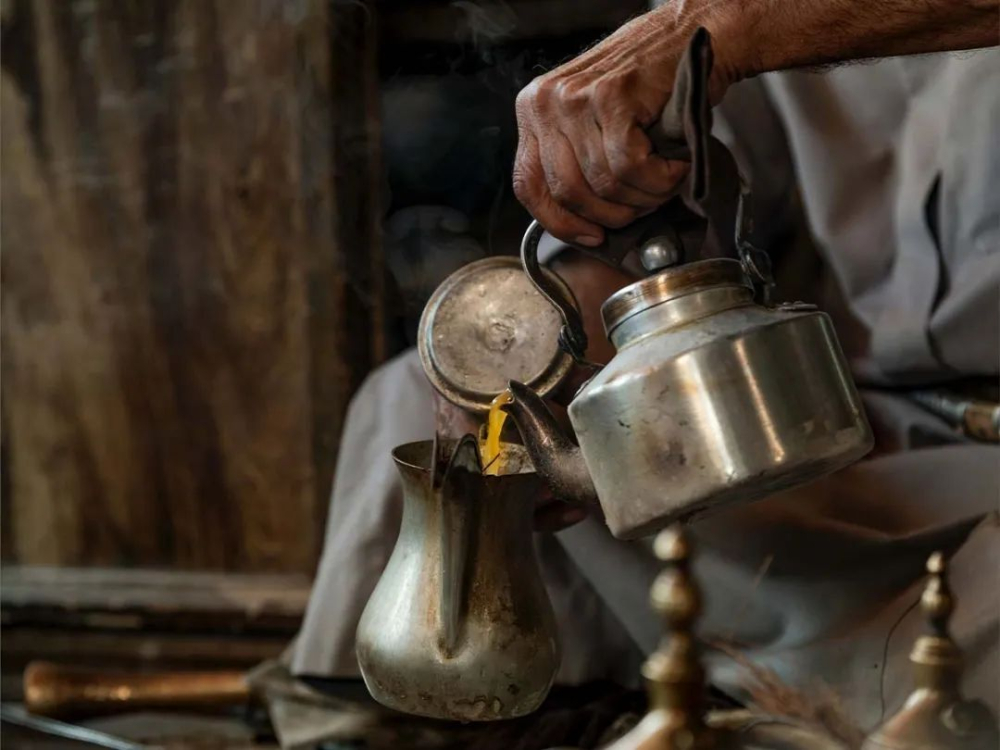
Coffee knowledge was used as a drug treatment in the early days when it was introduced into the Arabian Peninsula from Ethiopia (about the 9th-10th century AD). The earliest literature about coffee is the complete works of Medicine by Lazi, a famous Persian doctor in the 9th century AD, which mentioned that the juice "bunchum" boiled out of "bunn" has the effect of refreshing and treating headaches, and drinking too much will make people unable to fall asleep. And the word "bunn" refers to coffee fruit.
Between 1400 and 1500, it was popular to drink a hot drink called "Qishr" in the ports of Moka and Aden in Yemen. The ripe coffee berries are dried with only the pulp (kernels, that is, coffee beans will be discarded), then the pulp is roasted and mashed over a low heat, boiled in hot water with spices such as ginger and cinnamon, and drunk while it is hot.
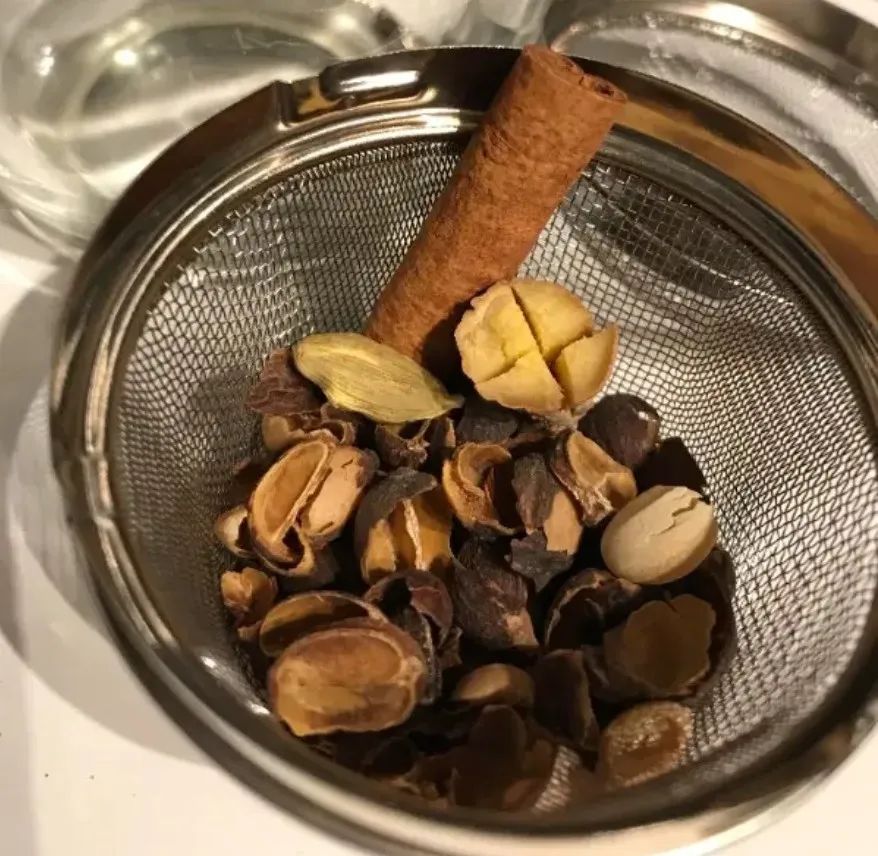
The pulp still contains 1% caffeine, has a refreshing effect, and the flavor is far sweeter than chewing coffee fruit, a practice that quickly spread throughout the Arabian Peninsula. At that time, people would choose to throw away the core part, maybe when the coffee was still raw, it was too hard and bitter, so it was not loved.
It was not until 1450 that some people began to find that as long as the core was roasted for a long time and cooked with the pulp, the hot drink would be more fragrant and refreshing. In order to distinguish it from "Cash Qishr", this hot drink, which boils the roasted coffee kernels together, is called "Kava Gahwa".

This is also the original version of coffee as we now know it. At present, the sound of coffee in all countries comes from the word "Gahwa". The word "Coffee" was first included in the British dictionary in 1599.
Interestingly, the word "Gahwa" is similar to the pronunciation of "Kafa Kafa" in southern Ethiopia. The original Ethiopians would have called the wine made from coffee fruit a word similar to the sound of "Gahwa". The 2000-year-old wine cup utensils unearthed in Ethiopia are engraved with similar pronunciation. On the other hand, religious believers in the Arab region drink "Gahwa" as wine because it is strictly forbidden to drink alcohol.
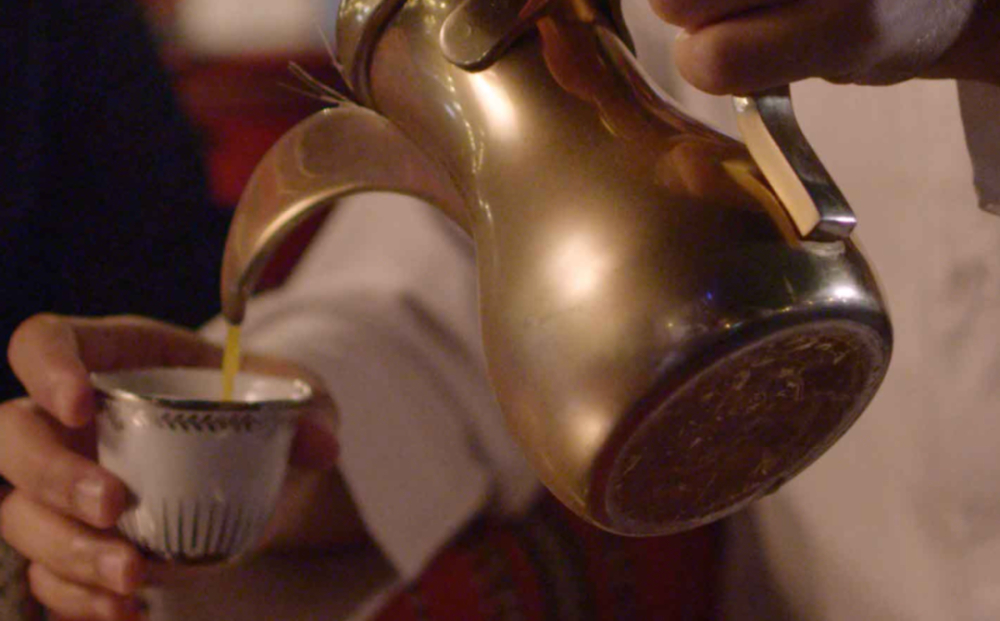
Photo Source: Internet YT-Mr.Q
Important Notice :
前街咖啡 FrontStreet Coffee has moved to new addredd:
FrontStreet Coffee Address: 315,Donghua East Road,GuangZhou
Tel:020 38364473
- Prev

Honey snow ice city to open up overseas markets! Current situation of New Tea and Milk Tea Market in Asia, Japan, South Korea and Thailand
Professional coffee knowledge exchange more coffee bean information please follow the coffee workshop (Wechat official account cafe_style) more boutique coffee beans please add private Wechat Qianjie coffee, WeChat: qjcoffeex recently opened its first store in South Korea, China's new tea chain brand giant Mixue ice city
- Next

The ritual sense of the new winter? "making tea around the stove" has become a new favorite!
Professional coffee knowledge exchange more coffee bean information please follow the coffee workshop (Wechat official account cafe_style) more boutique coffee beans please add private Wechat Qianjie coffee, WeChat: qjcoffeex after camping, Frisbee, this year's "tea by the stove" is becoming popular, making many young consumers
Related
- The ceremony is full! Starbucks starts to cut the ribbon at a complimentary coffee station?!
- A whole Michelin meal?! Lucky launches the new "Small Butter Apple Crispy Latte"
- Three tips for adjusting espresso on rainy days! Quickly find the right water temperature, powder, and grinding ratio for espresso!
- How much hot water does it take to brew hanging ear coffee? How does it taste best? Can hot water from the water dispenser be used to make ear drip coffee?
- What grade does Jamaica Blue Mountain No. 1 coffee belong to and how to drink it better? What is the highest grade of Blue Mountain coffee for coffee aristocrats?
- What are the flavor characteristics of the world-famous coffee Blue Mountain No. 1 Golden Mantelin? What are the characteristics of deep-roasted bitter coffee?
- Can I make coffee a second time in an Italian hand-brewed mocha pot? Why can't coffee be brewed several times like tea leaves?
- Hand-brewed coffee flows with a knife and a tornado. How to brew it? What is the proportion of grinding water and water temperature divided into?
- What is the difference between Indonesian Sumatra Mantinin coffee and gold Mantinin? How to distinguish between real and fake golden Mantelin coffee?
- What does bypass mean in coffee? Why can hand-brewed coffee and water make it better?

